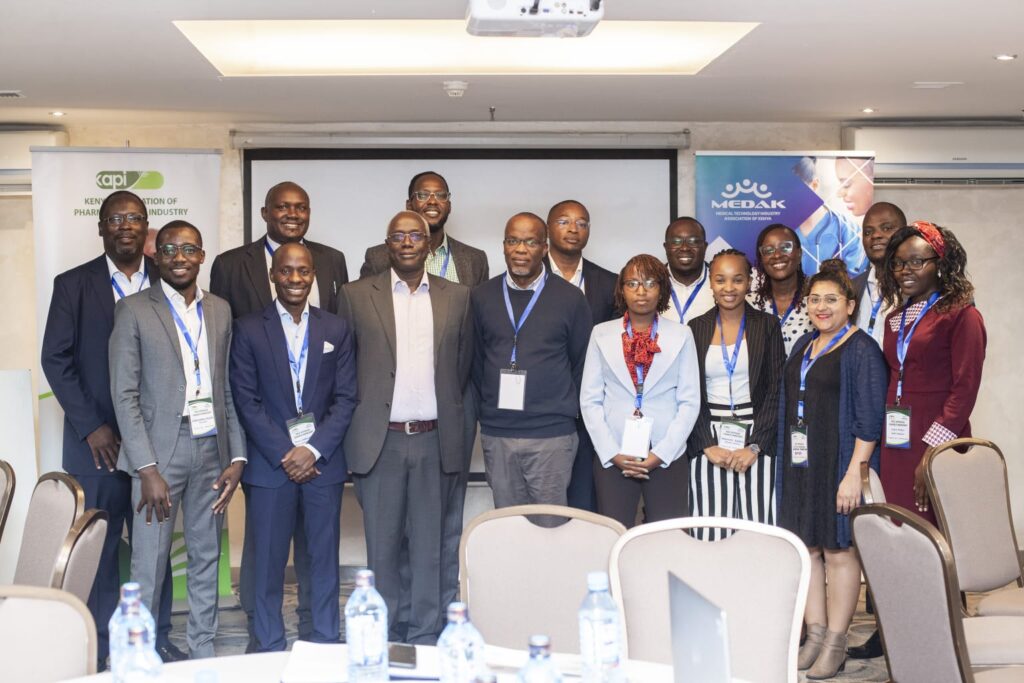KAPI and MEDAK Meet For a Two-Day Workshop

Pharmaceutical and Medical Technology Industry Associations (KAPI and MEDAK) Convene for a Two-Day Workshop on Regulatory Processes towards Ensuring Reliable Access to Medicines & Medical Devices.
Kenya Association of Pharmaceutical Industry (KAPI) and the Medical Technology Industry Association of Kenya (MEDAK) have convened a workshop to help pharmaceutical players, including professionals and regulators shape best practices for post-approval processes. The workshop is scheduled to take place at the Four Points Sheraton, Hurlingham, Nairobi-Kenya, on the 21st and 22nd March 2024. The workshop aims to strengthen regulatory frameworks and identify operational gaps that hinder reliable access to medicines, leading to prolonged shortages of critical medicines, and causing stress on the health systems.
The event will be graced by Dr. Fred Siyoi, CEO Pharmacy and Poisons Board (PPB), Dr. Tom Menge, CS Ministry of Health representative (The Chief Pharmacist and Head, Directorate of Health Products and Technologies, State Department of Medical Services, Ministry of Health, Kenya) with KAPI Chairperson, Dr. James Mokoro and Dr. Steven Kipkoti, Chairperson – MEDAK officially opening the workshop on Post Approval Changes.
In line with the Government’s commitment towards the realization of Universal Health Coverage (UHC), reliance access to safe, effective, and quality medicines and health technologies is a critical priority. This is within the mandate of the Pharmacy and Poisons Board (PPB), the government regulatory agency that receives applications from manufacturers or their representatives to register and allow for distribution and use in the country.
One of the regulatory processes involved in ascertaining the quality and safety of these products is post-approval changes, which include all changes that may happen during the lifecycle of medicine from the first registration.
These include but are not limited to changes in manufacturing sites, equipment, source of raw materials or any other changes that may occur on the product lifecycle. Unless these are reviewed, evaluated, and considered satisfactory to the country’s regulatory requirements, they cannot be implemented.
Training is part of the capacity-building initiatives aimed at reducing delays in processing these changes, which pose a risk, especially where manufacturers do not get approvals in time, hence affecting the supply of medicines, medical devices, and health technologies in the country.
These delays result in patients not getting their medicines, medical devices, and health technologies in time-critical for their treatment. Considering global best practices, which include the use of reliance – a process where one regulator considers the review done by another regulator from a different country to decide whether to approve such a change. Training increases knowledge to ensure such risks are effectively managed.





